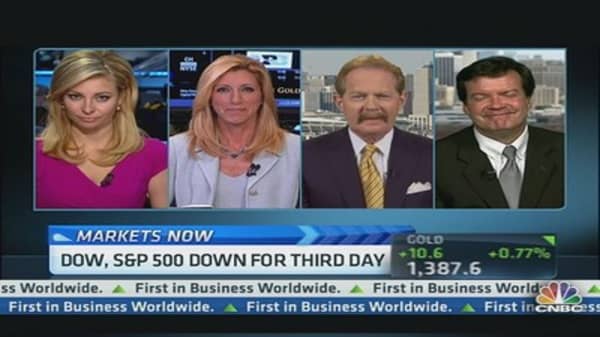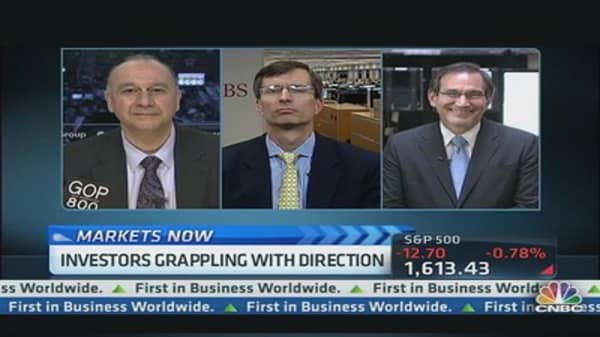Data traffic management software maker Gigamon skyrocketed nearly 50 percent in its trading debut on the New York Stock Exchange. The company sold 6.75 million shares at $19 each, raising nearly $128 million.
Hewlett-Packard rallied after CEO Meg Whitman told CNBC that revenue growth is "still possible" for the computer maker in its fiscal year 2014, but added the performance of the overall PC market is a wild card.
Yum Brands ended flat a day after the fast-food chains operator reported a 19 percent drop in China same-store sales in May. China is responsible for about half the sales for Yum, the parent of the KFC, Taco Bell, and Pizza Hut restaurant chains.
Rambus soared after the company settled a patent case with South Korea's SK Hynix, which will pay the rival chipmaker $240 million.
Lennar gained after Keefe Bruyeett & Woods upgraded the homebuilder to "outperform" from "market perform."
GlaxoSmithKline rose after the pharmaceutical giant dismissed its head of research and development in China, following an investigation that determined data used in a 2010 research paper was misrepresented.
Pfizer advanced after the drugmaker said rival Teva Pharmaceuticals and Sun Pharmaceutical Industries would pay $2.15 billion to settle a patent infringement lawsuit related to its acid-reflux drug Protonix.
Meanwhile, the Financial Times reported that Apple bonds had fallen by up to 9 percent in value in under six weeks.
H&R Block and Men's Wearhouse are scheduled to post earnings after the closing bell.
Treasury prices declined after the government sold $21 billion in 10-year notes at a high yield of 2.209 percent. The bid-to-cover ratio, an indicator of demand, was 2.53.
Weekly mortgage applications rose for the first time in a month as a surge in interest rates pushed prospective home buyers to act, according to the Mortgage Bankers Association.
—By CNBC's JeeYeon Park. Follow JeeYeon on Twitter: @JeeYeonParkCNBC





